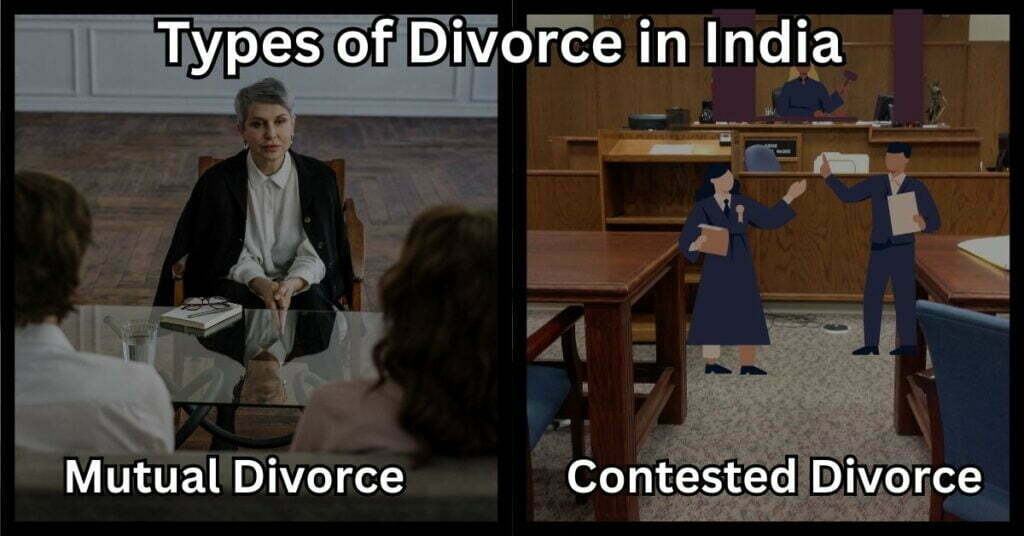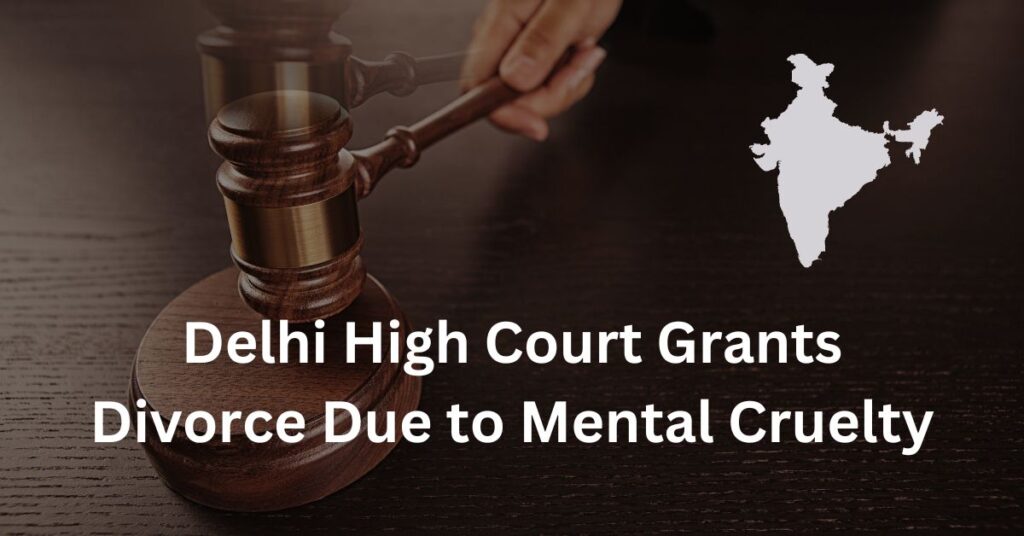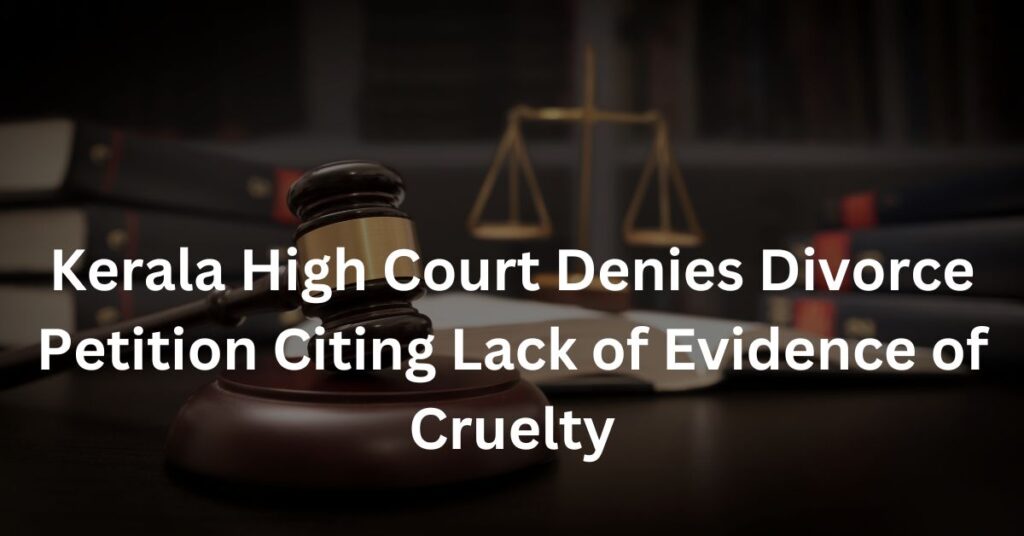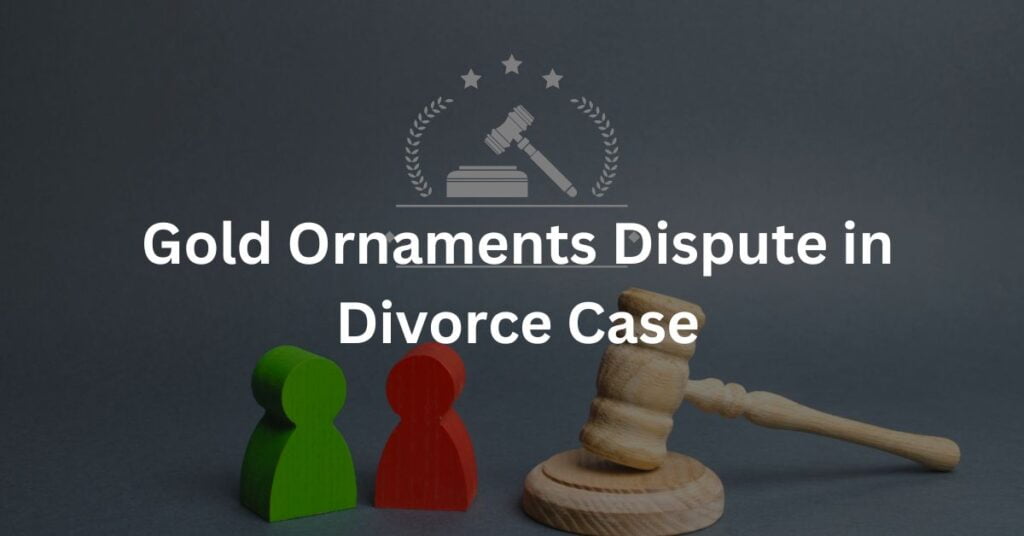Divorce in India: A Comprehensive Guide to Navigating the Legal Process

Welcome to our comprehensive guide on divorce in India. We understand that going through a divorce can be a challenging and emotionally taxing experience, and it’s crucial to have access to accurate information to navigate this process effectively. In this article, we aim to provide you with a detailed overview of divorce in India, including its legal aspects, procedures, and important considerations. Let’s delve into this topic further.
Table of Contents
Types of Divorce in India
Divorce in India can be classified into two types: mutual and contested. Mutual divorce is when both spouses agree to end the marriage and file a joint petition, reaching a settlement on various issues. Contested divorce is when one spouse initiates divorce proceedings without the other’s consent, and the court decides on matters like custody and property division. Mutual divorce is faster and amicable, while contested divorce is lengthier and often more adversarial.

Key Differences between Mutual divorce and Contested Divorce in India
Mutual Divorce in India
Contested Divorce in India
Consent of both parties is required
Consent of both parties is not required
Parties work together to reach a settlement
Parties may not cooperate or agree on terms
Generally less time-consuming and costly
Often more time-consuming and costly
Minimal court involvement
More court hearings and proceedings
Parties negotiate and agree on division of assets
Court decides on division of assets
Parties resolve disputes amicably
Disputes and issues may require court rulings
Generally less emotionally taxing
May involve heightened emotional stress
Limited possibility of appeal, usually challenging consent or agreement
Possibility to appeal court decisions
Divorce Laws in India
In India, divorce laws vary depending on the religion and personal laws of the individuals involved. Hindu Marriages are governed by Hindu Marriage Act . Grounds for contested divorce are mentioned under Section 13 of the said act. Conditions for mutual consent divorce are mentioned under Section 13B of the act. Similar provisions exist in other acts like the Divorce Act, 1869 (for Christians), the Parsi Marriage and Divorce Act of 1936 (for Parsis) and the Special Marriage Act of 1954 (for couples of different religion).
General step-by-step Process for Mutual Divorce in India
- Filing the Joint Petition : Husband and wife need to contact an advocate to prepare their joint petition which contains all the terms related to property division, child custody , maintenance and alimony. The petition is then filed in the court.
- Verification and Counselling : The court may schedule a date for verification and counselling, where both parties will need to appear. This session aims to ensure that the decision for divorce is voluntary and informed. The court may also attempt to reconcile the spouses during this process.
- Final Hearing and Decree : After the verification process, the court will schedule a final hearing. Both parties must be present, and the court will review the terms of the divorce settlement. If satisfied, the court will grant a decree of divorce, officially dissolving the marriage.
For detailed process of mutual divorce case as being followed in metro cities of India, click Stepwise Process Mutual Divorce .
General step-by-step Process for Contested Divorce in India
- Consultation with an Attorney : Seek the advice of a qualified family law attorney who specializes in divorce cases. They will assess your situation, explain the legal process, and guide you on the necessary steps to file a contested divorce.
- Drafting the Divorce Petition: Your attorney will help you draft a divorce petition, which states the grounds for seeking divorce and the specific reasons for the breakdown of the marriage. The petition will also outline the relief sought, such as child custody, alimony, and property division. Under the various acts, several grounds for divorce are recognized. Most common grounds are mentioned below:
- Adultery : It refers to a spouse engaging in a voluntary sexual relationship outside the marriage. If one party can prove the other’s adultery, it can be a valid ground for divorce.
- Cruelty : It can be physical or mental, and it must be of such a nature that it makes living together intolerable. Acts of violence, harassment, or mental torture can be cited as grounds for divorce based on cruelty. Most of the cases of divorce are filed on the ground of cruelty. To know more about cruelty as a ground for divorce, refer these judgments on cruelty .
- Desertion : It occurs when one spouse abandons the other without reasonable cause for a continuous period of at least two years. The deserted spouse can file for divorce on this ground.
- Conversion : If one spouse converts to another religion, it can serve as a ground for divorce if the other party does not wish to continue the marriage.
- Medical Disorder : If a spouse suffers from a medical disorder or has been diagnosed with an incurable illness, the other spouse can seek a divorce on this ground.
- Filing the Divorce Petition : The divorce petition, along with the necessary supporting documents, must be filed at the appropriate Family Court or District Court having jurisdiction over your case. Filing fees must be paid as per the court’s rules.
- Response and Counter-Statement : The other party has the opportunity to respond to the divorce petition by filing a written response, called a counter-statement. They may accept or contest the grounds mentioned in the original petition.
- Examination and Cross-Examination : The court will schedule hearings for the examination and cross-examination of the parties and any witnesses. Both parties will be given an opportunity to present their side and provide evidence to support their claims.
- Mediation and Settlement Discussions : In some cases, the court may refer the parties for mediation or settlement discussions to explore the possibility of resolving disputes amicably. The aim is to reach a mutually agreeable settlement on issues like child custody, alimony, and property division.
- Trial and Final Judgment : If the parties are unable to reach a settlement, the case proceeds to trial. Both parties present their arguments, evidence, and witnesses before the court. The court will evaluate the evidence and make a final judgment on the divorce and related issues.
- Appeals (if applicable) : If dissatisfied with the judgment, either party may have the option to appeal the decision within a specified time frame. The case will then be reviewed by a higher court.

Conclusion
Navigating the process of divorce in India can be complex, but having a clear understanding of the legal aspects, procedures, and considerations can significantly help. The choice between mutual divorce and contested divorce in India is a crucial decision that depends on the specific circumstances and dynamics of each individual case.
Mutual divorce offers a path for couples who are willing to cooperate and reach an agreement on the terms of their separation. It can be a quicker and less emotionally taxing process, allowing the parties to maintain a level of control over the outcome. On the other hand, contested divorce may be necessary when there is a lack of mutual consent or significant disputes regarding various aspects of the divorce. Although it can be a more time-consuming and adversarial process, contested divorce provides an opportunity for individuals to seek legal intervention and have their interests protected by the court.
Read Related Posts

Delhi High Court Grants Divorce on Grounds of Mental Cruelty
By Indian Family Laws / Last Modified on August 20, 2024 / Divorce / Cruelty, Judgment
Delhi High Court Grants Divorce Due to Mental Cruelty In a recent judgment, the Delhi High Court granted a divorce to a couple who had…

Kerala High Court Denies Divorce Petition Citing Lack of Evidence of Cruelty
By Indian Family Laws / Last Modified on July 3, 2024 / Divorce / Judgment
Kerala High Court Denies Divorce Petition Citing Lack of Evidence of Cruelty The Kerala High Court at Ernakulam, presided by Justices Anil K. Narendran and…

Court Rules on Gold Ornaments Dispute in Divorce Case
By Indian Family Laws / Last Modified on June 29, 2024 / Divorce / Judgment
High Court Dismisses Petition Over Gold Ornaments in Divorce Case In a recent judgment by the High Court of Kerala at Ernakulam, a dispute over…







